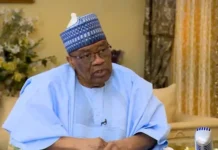Trinidad and Tobago has opted to redraws its coat of arms first time since they gained independence in 1962 by removing three ships- the Pinta, the Nina and Santa Maria which were associated with Christopher Columbus and changed it with steelpan, a famous percussion which has its origin with the island. It is a move that was accepted in Trinidad and Tobago. A change that was proposed to take effect late in September, it was first announced by Prime Minister Keith Rowley at a party convention. In search of new identity different from any colonial reference the Caribbean nation has taken this route to start the overhaul, a major shift from colonial attachments.
Not limited to coat of arms alone, Trinidad and Tobago will vote whether certain strictures, sign and monument will join suit as coat of arms as it related to colonial affiliations. While the UK’s Privy Council remain court of finality in Trinidad and Tobago, Prime Minister Keith Rowley is making a strong case for it to be jettisoned. This was a widespread legal tradition for colonies under British rule. It was also applicable in Africa, in countries under British colonial rule, making Privy Council court of last appeal which most countries removed not quite long after their independence in favour of indigenous court as court of final appeal.
Related articles:
How close is Economic independence in Africa and Caribbean?
In as much as the move is laudable but the core needs of the people revolve around economic independence, which has sprout out many protests in Africa- Uganda, Kenya and Nigeria. While insecurity and gun violence has put Haiti, into constant fear. The Caribbean nation cannot make impressive economic growth under unwelcoming environment. The energy is better effective where it caters the interest of common citizens. The people can be heard loud and clear, they need economic independence, new identity different from status quo which has brought the system to its kneels. A fair ground where progressive growth is enabled for all to thrive and create opportunity for sustainable growth, whether it starts with removal of structures, sign and monument time will tell.
In Africa and Caribbean nations people have little or no trust in public offices, it has been reduced to a gimmick, making an honest attempt to regain this trust should be at the top of the agenda. The severing of colonial ties should also extend to severing ties with corrupt practices and maladministration. There should be conscious effort to enthrone human-centric policies based on welfare and good governance, this is where people’s lives will be impacted and enjoy the dividends of good governance moving forward.

















